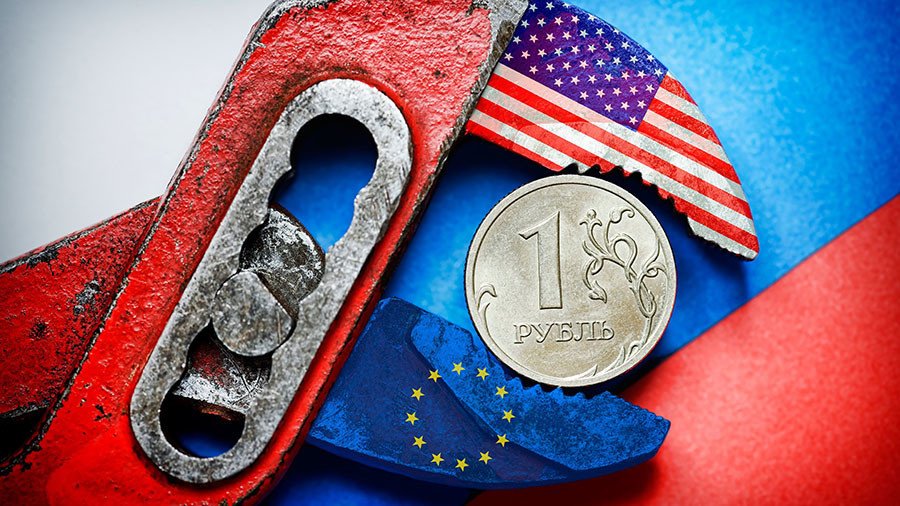The latest US sanctions, which sent the Russian currency to its steepest drop in the past three years, surprisingly helped to boost the country’s budget with an extra 232 billion rubles ($3.8 billion).
The decline in the value of the ruble, as well as recent purchases of hard currency by the Central Bank of Russia, brought an additional inflow of money for the Russian government.
The re-assessment of foreign-exchange reserves shows that, at the peak of the ruble crash, when the national currency fell to over 65 rubles to one dollar, Russia's sovereign wealth fund reaped a profit of some 470 billion rubles ($7.6 billion). However, the subsequent strengthening of the Russian currency wiped out nearly half of the gains.
The unexpected earnings could reportedly help Russia’s Finance Ministry to register its first current budget surplus since 2011. The ministry will be able to monetize those assets at the end of the year, when the fund converts the foreign currencies into rubles for implementing budget spending.
A weak ruble may bring the Russian government even more profit. A slight growth of the US dollar, by just one ruble, could bring an extra 85 billion rubles ($1.4 billion) to the Russian budget – even with stable prices for crude, according to Central Bank estimates, published in December. Thus, the latest devaluation of the national currency may bring up to 255 billion rubles ($4.1 billion) by the end of 2018.
Last week, Russian Finance Minister Anton Siluanov said that the current state financial standing, bolstered by growing prices for crude, may create a budget surplus of 0.5 percent of the country’s GDP for the first time in seven years.
“Expensive oil and cheap ruble is the dream for the Finance Ministry,” said Alexander Razuvaev, director of the Analytical Department at Alpari Research and Analysis.
For more stories on economy & finance visit RT's business section



